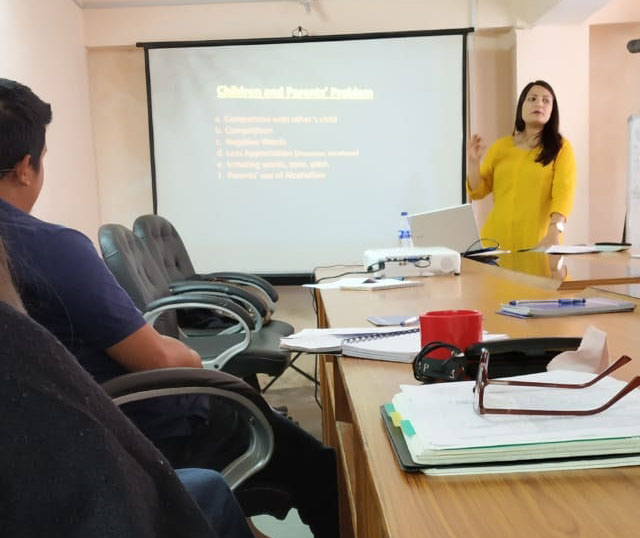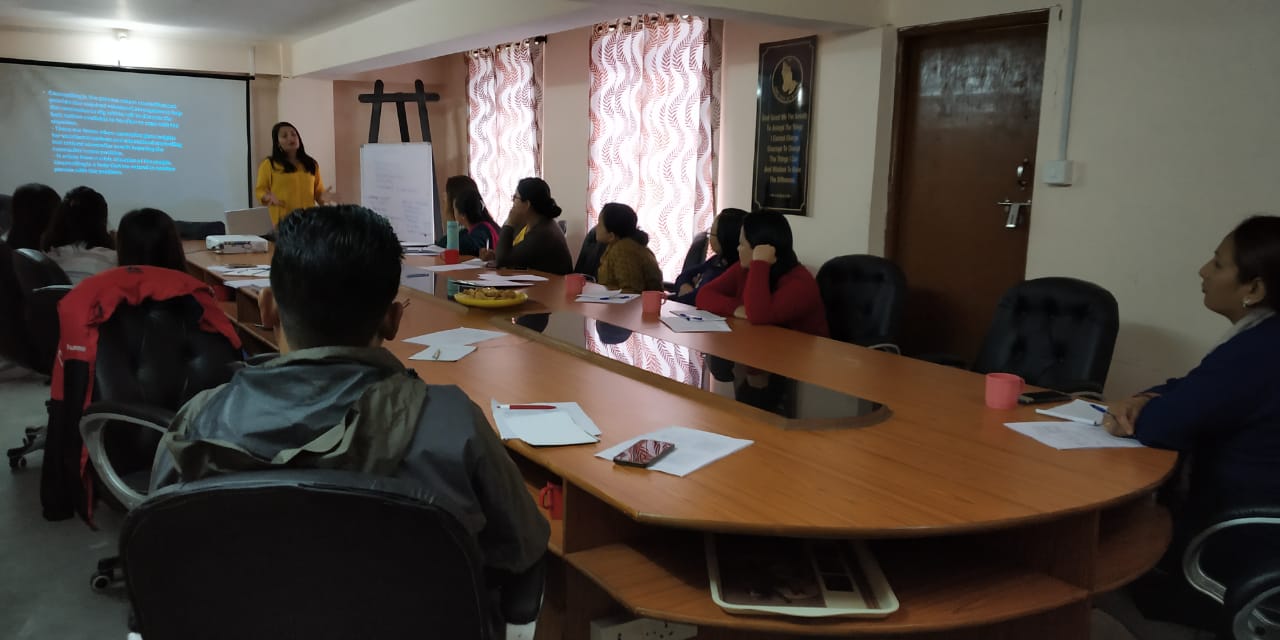Child centred counselling system is a necessity in the schools of North Bengal

The need for child-centered counselling workshops, collaboratively with schools and district administration was emphasised by the participants, on June 12, in Darjeeling. The participants were also able to gauge the requirement of professional counsellors in the schools of Darjeeling, given the kind of risks and vulnerabilities children of the hills are surrounded with.
A one-day workshop was organised on Child Centred Counselling by Anugyalaya Diocesan Social Service Society (ADDSSS), Darjeeling, for the teachers and students from Hayden Hall and staff of Ghoom Girls’ Higher Secondary School, on June 12. Ms. Sarawati Koirala, a Ph.D. Scholar from the Allahabad University shared the scenario of child rights and vulnerability of children to sexual abuses, drawing from her vast experience in child and adolescent counselling of inhabitant of Nepal, and children in North and Western parts of India.

“Child centres counselling needs to be based on the understanding of the various development stages in a child, and the surroundings. It requires consciously created a healthy environment to enable a child to feel safe and speak up about the problems. Unspoken distress can cause irreversible damage to the child. However, the good news is that even parents, guardian, and teachers can be good counsellors, provided they imbibe the principles of being an active listener, provide a friendly environment assuring and ensuring confidentiality, and regular follow up on the child’s case”, said Ms. Koirala. If undetected, even a seemingly small issue can cause protracted depression or sickness in a child. Therefore, non-verbal communications and gestures can be more effective where words become barriers between the child in need and the counsellor.
Parents are the first and best counsellors as they can observe their children at home and at schools, the teachers can play the role of counsellor to help the children speak out their distress if a conducive environment is not available at home. Nevertheless, the need for having a professional child counsellor or professionally trained counsellors, for enabling smooth emotional and mental development among children in schools was stressed upon. This kind of support would help identify children needing more assistance, those hailing from disturbed, marginalised and poorer families. Having child counsellors in schools can alert the parents to the child’s condition to allow positive parenting and care.

The need for such sessions collaboratively with schools and district administration across the schools was emphasised by the participants. The participants were also able to gauge the requirement of professional counsellors in the schools of Darjeeling, given that children in the hills face high risk of child sexual abuse, trafficking, missing, and peer pressure, as is being dealt with under the Caritas India programme ‘Child Rights-My responsibility’ implemented by ADDSSS & Bal Suraksha Abhiyan in Darjeeling and Kalimpong districts of West Bengal, since 2013, supported by Caritas Germany.
The workshop was one in series of workshops facilitated periodically by ADDSSS on child rights and protection in Schools, Village, and Block level Child Protection Committee members, Civic Police Volunteers, and other stakeholders under the above programme.
Upcoming News
Empowering the invisible workforce through holistic migrant welfare approach
Internal migration forms the backbone of India’s workforce, driving the growth of urban centers and...
LEARN MORENATURE-BASED SOLUTIONS: RECONNECTING COMMUNITIES WITH THE WISDOM OF NATURE
As climate threats intensify across India, Nature-Based Solutions (NbS) are emerging as powerful community-rooted strategies...
LEARN MOREStrengthening Humanitarian Expertise Through DG ECHO Training
Caritas India recently participated in a high-level capacity-building training organized by the Directorate-General for European...
LEARN MORE



 91 -11 - 2336 3390
91 -11 - 2336 3390  director@caritasindia.org
director@caritasindia.org 